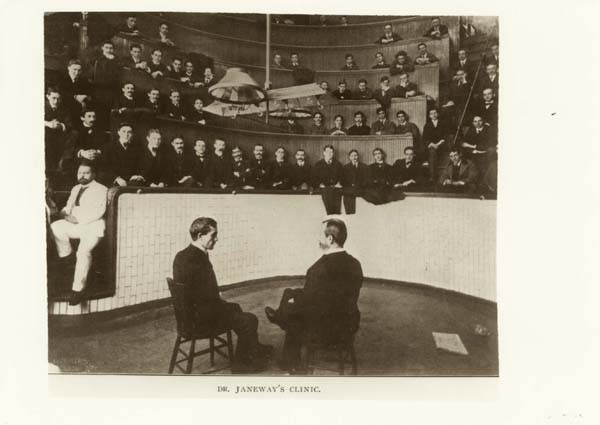 Commentary by Melissa Price, MD, PGY-3
Commentary by Melissa Price, MD, PGY-3
Please also see the clinical vignette presented before last week’s Grand Rounds.
At Medical Grand Rounds on March 11th, 2009, the NYU Medical Community had the immense pleasure of hosting Dr. Allan I. Pack, MD, Ch.B, and Ph.D from the University of Pennsylvania Medical Center as he indulged us in his research on the biological functions of sleep and its regulation.
Studying the importance of sleep and its disorders has never been more relevant. Not only is the Accreditation Council for Graduate medical Education (ACGME) considering to drastically alter residency programs across the nation by instilling a rule requiring all thirty-hour shifts to incorporate a five-hour period of uninterrupted sleep, studies reveal that Americans, as a group, are sleeping less than ever before. With sleep loss, or wakefulness greater than 16 hours, accumulated performance impairment and lapses commonly occur. Studies linking sleep deprivation with medical errors and increasing motor vehicle accidents are prevalent. However, if given the opportunity to have sufficient sleep, Dr. Pack showed that these lapses can resolve.
He opened his lecture by presenting sleep regulation as a two process model. The first component of this model is the direct relationship between the drive to sleep with the duration of prior wakefulness. The second component of sleep regulation is a rhythmic circadian process over a twenty-four hour day. Information from light and dark cycles is sent via the retinohypothalamic tract to the suprachiasmatic nucleus within the hypothalamus wherein molecular feedback mechanisms and oscillators help to form our sleep clocks. The relevance of the Spanish siesta was validated by research showing that early afternoon and evening are the “sleepiest periods†of the day, while early evening is the “forbidden time to sleep.†If one tries to sleep at periods of such alert clock times, sleep efficiency will be impaired.
Cleverly dubbing early-risers as larks as opposed to night owls, Dr. Pack discussed the great variation between the sleep clocks amongst individuals and posited that larks may have a biological advantage due to morning wakefulness. Additionally, there are significant variations in how people handle sleep deprivation. Furthermore, our sleep clocks and behaviors may be inherited as illustrated by twin studies and research on family advanced sleep-phase syndrome. This syndrome, with its autosomal dominant inheritance, is due to single base mutation in one clock gene (period 2).
The basis of the molecular clock is the genes that oscillate within it. By studying Drosphilia, transcription factors such as CLK: BMAL have been discovered as the core oscillator initiators. Moreover, in trying to answer the age-old question of why we sleep, Dr. Pack and his colleagues believe that “during sleep there is a rebuilding of multiple key cellular components in preparation for subsequent wakefulness.†They have found that roughly 2,000 genes involved mainly in biosynthetic pathways increases expression during the sleep cycle. Additionally, during sleep deprivation, many genes for key metabolic processes are down-regulated. There is also upregulation in brain during sleep deprivation of genes involved in the unfolded protein response. Thus, sleep deprivation leads to cellular stress in brain.
Through Dr. Pack, we can better realize that decoding the biology of sleep has remarkable implications for humankind and for the field of medicine across a multitude of disciplines. By understanding sleep, we can learn to sleep better. As sleep medicine evolves into a prominent field, the medical community eagerly awaits the decoding of one of the most unifying behaviors of all of earth’s creatures.
Naidoo N, Giang W, Galante RJ, Pack AI. Sleep deprivation induces the unfolded protein response in mouse cerebral cortex. J Neurochem 92:1150-1157, 2005.
Mackiewicz, M., Shockley, K., Romer, M., Galante, R.J., Zimmerman, J. E., Naidoo, N., Baldwin, D.A., Jensen, S. T., Churchill. G. A., and Pack, A. Macromolecule biosynthesis: a key function of sleep. Physiol Genomics 31:441-457, 2007.
Mackiewicz M, Zimmerman JE, Shockley KR, Churchill GA, Pack AI. What are microarrays teaching us about sleep? Trends Mol Med 15:79-87, 2009.
